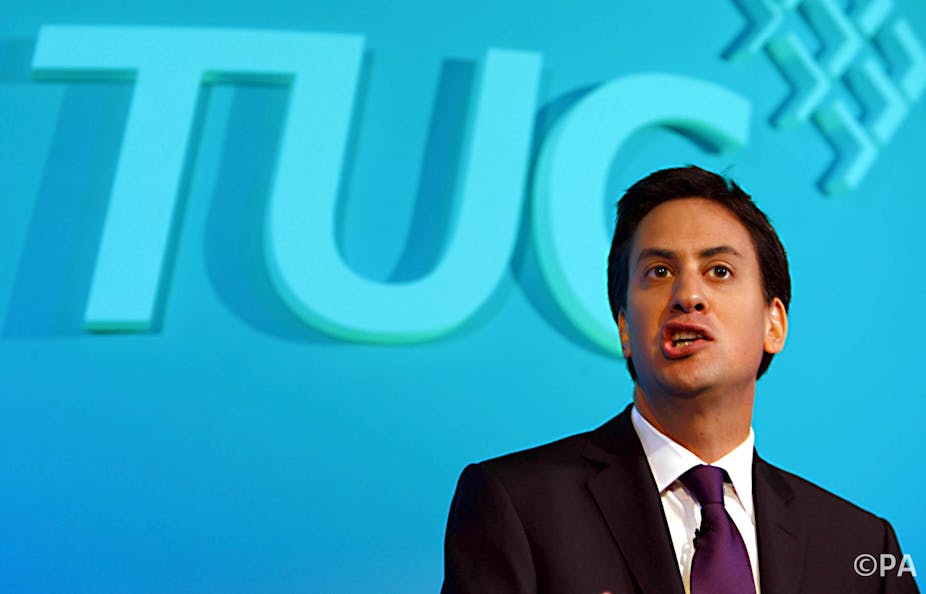This September will be one that Ed Miliband will probably want to forget. He must be dreading the inevitable mauling he will get from the union delegates at the Labour Party Conference in Brighton at the end in the month. There will also be the criticism from the Labour malcontents over his performance as leader, both at the dispatch box and in his dealing with the unions, who got him elected.
On Tuesday morning Ed Miliband addresses the TUC Congress in Bournemouth and I doubt he is looking forward to it. The heckling by the assembled delegates will probably be much louder than the applause. Having been elected to the Labour leadership on a union ticket he has done the unthinkable - he has sought to weaken the link between Labour and the unions. This was mainly a knee-jerk reaction to the Falkirk vote-rigging scandal, something Unite was later cleared of by a Labour investigation.
The move was packaged as “redefining” the relationship to make it more suitable for the 21st century, but it’s clear that Miliband wants to reduce the unions’ already minimal influence and interference in Labour policy-making. The main concern is to make the Labour party electable in the 2015 general election. Labour cannot make policy from the opposition benches. Miliband sees this as his chance to leave his indelible mark on Labour as Tony Blair did over Clause IV. It’s a high-risk strategy.
Huge price to pay
The redefinition of the relationship with the unions may be necessary to make the party electable, but it comes with a hefty price tag. Labour relies heavily on the unions for its funding. To date the Party has received just under £11m in donations, of which about £3.7m, or 35%, came from the affiliated unions. Unite and GMB have not been slow to criticise Labour and Miliband for his distancing strategy.

In July, Len McCluskey of Unite was vociferous in his condemnation of Miliband’s decision and threatened to cut the union’s financial support to Labour. Earlier this week the GMB confirmed its decision to cut its donation to Labour by £1m. In the first half of 2013 the GMB has reduced its donations to Labour by around 50 per cent. If this doesn’t worry Miliband, it will certainly worry the Labour party’s treasurer, Diana Holland. Interestingly Holland is the assistant general secretary of Unite.
Labour cannot survive financially without the support of the affiliated unions. In the last decade they have received around £75m from the four main contributors. The three biggest donors were Unite (£25.3m), Unison (£22.5m), and the GMB (£19). Added to this is £8.7m from the Communication Workers Union. Frankly, the idea that individuals “opting in” and joining Labour individually will make good the losses created by abolishing the political levy is laughable and most people know it.
Most union members who contribute to the political fund do so without much thought as it’s a small amount; “should I opt out is?” is not a question many ask themselves, but “opting in” will be something they may choose not to do.
Labour alienates the unions at its financial peril. If all 15 affiliated unions follow the GMB, then Labour is in deep financial trouble. The reduction in union support for Labour couldn’t come at a worse time. It will cloud the party conference in Brighton and, more importantly, it will impact on the party’s general election campaigning ability.

Last chance at leadership
The 2013 conference could well be Miliband’s “last chance saloon” - but it is even more likely that it will be his final conference as leader. The unions, and some MPs, are unhappy with Miliband’s proposals for “open primaries” in the selection of candidates. There are deep concerns over the way the British media might manipulate the selection process. The unions are very uncomfortable with the Blair-inspired presidential style politics which chacterise New Labour. They want a return to good, old-fashioned British politics.
In the post-conference period, I envisage corridor discussions in Westminster about what to do with Miliband. There is already much speculation about potential successors. The names of Yvette Cooper and her husband Ed Balls have been mooted; we’ve seen family feuds over the Labour leadership before. The shadow business secretary, Chuka Umunna, is also considered a worthy candidate by some, the question is whether he has the requisite experience - I think not.

I still believe Alan Johnson would make a good leader. With his extensive ministerial experience, he is by far the most experienced and qualified of those being discussed. He has a clear ideological position, and he talks sense. Johnson would be seen by the unions as traditional Labour, but he would be no pushover and they know it.
They say that a week is a long time in politics. Miliband has two conference weeks coming up which I’m sure will feel like an eternity.

